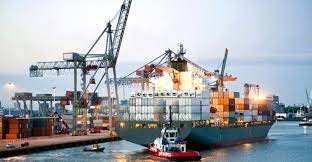Sanctions Enforcement: “The New FCPA”

Hold onto your hats – while we are on the cusp of more FCPA enforcement actions, the Justice Department and OFAC are gearing up for real and significant sanctions enforcement actions. The dye is cast, so here we go.
Deputy Attorney General Lisa Monaco was recently quoted stating that sanctions enforcement is the “new FCPA.” This is not so surprising given the global crisis caused by Russia’s unprovoked invasion of Ukraine and the global rally in support of Ukraine. The U.S. government, along with its Allies and partners, have put into place in unprecedented speed, a comprehensive set of economic sanctions. It has been remarkable to follow.
Given these actions, it is not surprising that DOJ and OFAC would follow up with an aggressive enforcement program. Frankly, the foundation for aggressive enforcement has been built over the last few years. We have highlighted in past blog postings several significant enforcement actions, pre-dating the Russia-Ukraine crisis, which reflected this new approach, especially with respect to the North Korea and Iran Sanctions Programs.

FCPA enforcement developed through the years in a coordinated fashion between criminal and civil enforcement through the joint activities of the Justice Department and the Securities and Exchange Commission. As a result, joint investigations or resolutions were often achieved that involved resolution of criminal and civil liability.
A similar relationship already exists between the Justice Department and OFAC. In fact, in several cases, DOJ and OFAC have reached joint resolutions of criminal and civil charges (e.g. BNP Paribas, SAP and several other cases). DOJ and OFAC have an established working relationship that is capable of conducting joint investigations and resolutions.
Even prior to Russia’s invasion of Ukraine, DOJ’s National Security Division emphasized its commitment to aggressive enforcement of export and sanctions controls. In the aftermath of Russia’s invasion, DOJ has ratcheted up its commitment even further in a series of aggressive statements of enforcement of the new Russia Sanctions Program.
In a number of early steps, DOJ scoured its files for cases involving relevant Russian targets and brought criminal cases against various actors for violating the 2014 Ukraine-Russia Sanctions Program which was implemented in 2014 in response to Russia’s annexation of Crimea. In related cases, DOJ brought several cases against Russians for violations of FARA registration requirements.

This was just the beginning. These early cases were developed from existing investigations. Since then, DOJ and OFAC have launched a number of investigations, targeting Russian Oligarch assets.
More importantly, however, DOJ’s and OFAC’s future actions will be significant. It is already likely that DOJ and OFAC have launched major investigations of potential violations by actors circumventing the new Russian sanctions program. Organizations have to redouble their commitment to export control and sanctions compliance. For weeks, companies have been struggling to keep up with the ever-changing situation – whether it was new and expanded US sanctions or EU sanctions – global companies have been trying to keep up.
While the pace of change has slowed down in this area, organizations need to take a fresh look at their overall export control and sanctions compliance programs to reflect the new enforcement era an urgency. As part of this approach, companies should review some of the prior DOJ-OFAC enforcement actions, such as the SAP and the PT Bukit Muria Jaya (BMJ) cases, for a model for how such joint prosecutions may be structured.

Similarly, it is important to remember that both DOJ and OFAC maintain voluntary self-disclosure programs, as does the Commerce Department’s Bureau of Industry and Security (BIS) for export controls. DOJ’s voluntary disclosure program tracks for the most part the Criminal Division’s Corporate Enforcement Policy. The SAP enforcement action, which resulted in DOJ entering a non-prosecution agreement (NPA) with SAP, reflected SAP’s participation in the voluntary disclosure program. SAP voluntarily disclosed its violations of the Iran Sanctions Program, cooperated extensively and enhanced its compliance program, DOJ only sought disgorgement of profits and did not impose an independent compliance monitor.
OFAC has a well-established voluntary disclosure program as well. Companies often participate in the program and earn significant discounts as well as avoidance of any significant enforcement action.















